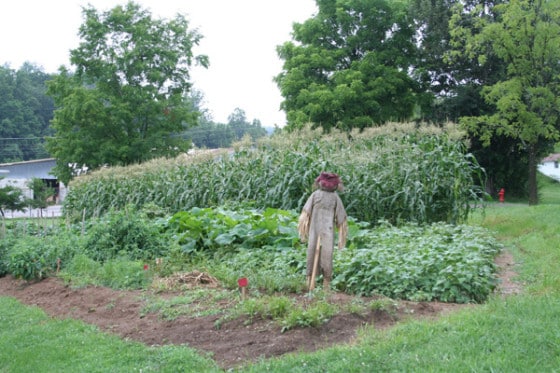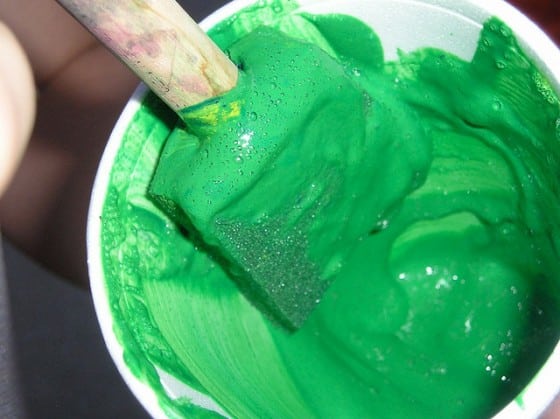
24 Eco-Friendly Habits Worth Adopting

Although we may not always want to admit it, many of us can very easily become creatures of habit. Whether your particular habit relates to how you get ready in the morning, how you get to work, what you eat, how you perform work-related tasks, how you relate to others, what materials you use to perform your everyday tasks or any manner of habits, the story rarely changes. Once we get into a certain routine we simply plug along happily, day by day, doing the same actions over and over again without giving them a second thought. In some cases, we could probably perform them in our sleep. But change is good, right? A little variety in our lives might prove beneficial, don’t you think? Well, I think so. That is why this week’s blog covers 25 eco-friendly habits worth adopting.
It doesn’t matter if you adopt 1, 2, 10 or all 25. What matters is that you add something new into your normal habits and routines. Make a decision to make an eco-friendly change and then follow through and do it. Pretty soon you’ll probably notice you are beginning to think and act in a more eco-friendly manner without even realizing it.
Reduce your consumption, reduce your material waste.
Reuse as many products as you can. While you are at it, try to kick the plastic habit and opt for reusable materials instead. You should also look for creative ways to reuse items you have.
Set up a place for recycling and start recycling those items you would have previously thrown away.
Conserve water. There is no reason to leave the faucet running while you wash fruits & vegetables, brush your teeth, clean the dishes and perform other similar tasks. In addition, running a half-full dishwasher or washing machine, watering your lawn during the hottest hours of the day and taking 20 minute showers is simply wasteful.
When you are out and about in the environment, whether that means visiting a local city or camping out in the nearby mountain, make a concerted effort to leave no trace. This is something you can practice every day, no matter where you go.
Eliminate food waste. Don’t buy more food than you need. Don’t make more than you will be able to eat. Here are more smart and easy tips to help you reduce food waste.
Keep an eye out for GMO foods. Read labels on the prepackaged items you buy and opt for organic when it comes to herbs, fruits and vegetables. Better yet, grow your own food.
If you have a yard or garden area, opt for or switch to more drought tolerate plants.
 Stop eating food that comes from cans. BPA can be extremely dangerous to children, pregnant women and in actuality, all of us.
Stop eating food that comes from cans. BPA can be extremely dangerous to children, pregnant women and in actuality, all of us.
Switch from processed and pre-packaged foods to homemade and naturally grown foods. You can create your own garden or get involved in a community garden.
Only use appliances such as your dishwasher, washing machine, etc only when they are full and only during off-peak hours.
Unplug all unused appliances and electronic devices. Although you may not be aware of it, unused but still plugged in devices, can suck vampire power from your home. As we all know…power costs money.
Research and start investing in alternative energy sources: solar water heating, solar panels, wind turbine and more.
Get rid of your toxic-filled makeup, lotions and sunscreens. Switch to ones that are not loaded with harmful chemicals.
Spend a little bit of time every day/week enjoying the beauty of nature.
Open your windows and let the fresh breeze in to help air out the indoor air pollution that has accumulated overnight or during the colder months of the year.
 Instead of wasting money on indoor lighting during the daytime hours, opt for some good old natural light.
Instead of wasting money on indoor lighting during the daytime hours, opt for some good old natural light.
If you do a lot of driving or plan to do a lot of driving, try adding a proven fuel catalyst such as Green Plus® to your vehicle to help improve fuel combustion, reduce harmful emissions and increase fuel efficiency.
Now that you’ve done that, rework your schedule so that you can drive less and walk-bike-skate-run more.
Become more consumer-conscious when it comes to the foods, products and toys you buy for your kids and family. Not all products are created equal and many products contain lead and other materials that can be harmful to a person’s health. To get further educated on the toxic chemicals in the environment around you, check out this post from thegoodhuman.com and visit unacceptablelevels.com.
Do not use pesticides or chemicals on your yard or garden. Switch to natural products that won’t contaminate your soil and more importantly, won’t contaminate you and your family.
Speaking of natural products…cleaning your house should not involve harmful chemicals and toxic products. Using natural cleaning products or homemade products will help get rid of the dirt without adding harmful materials in its place. Even certain foods can be used as eco-friendly cleaners.
Whenever you plan to travel, take the time to search for car companies, airlines, hotels and other businesses who are making an effort to be more sustainable.
 Try to use food, natural health solutions or changes in your lifestyle and diet to gain control over physical pain rather attempting to mask it with painkillers and other drugs. This article highlights 27 foods that contain natural aspirin and this article shows seven instances in which food really is the answer.
Try to use food, natural health solutions or changes in your lifestyle and diet to gain control over physical pain rather attempting to mask it with painkillers and other drugs. This article highlights 27 foods that contain natural aspirin and this article shows seven instances in which food really is the answer.
My list could probably go on and on, but I’ll end it here. If you have other eco-friendly habits you think are worth sharing, I’d love to hear about them. Leave your comments and tips below.
First photo by U.S. Department of Agriculture , canned goods photo by KOMUnews , open kitchen window photo by Chad-Ivan , and headache photo by Andy via Flickr Creative Commons



Post a comment